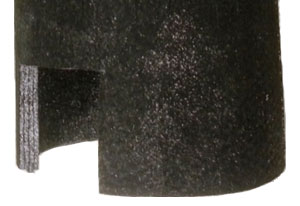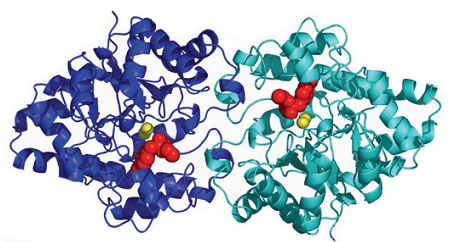Guild Associates has been in the forefront of Chemical and Biological Defense since its early days. As a result, Guild Associates is a recognized expert in the field of chemical decontamination.
Guild Associates, under contract with the Edgewood Chemical and Biological Center, developed the original A200 Decontamination Sorbent and the operational procedure for the M100 Equipment Decontamination Kit in the early 2000's. The A200 is a silica-based sorbent material that effectively adsorbs chemical warfare agents, rendering the agents into an inert state.
The M100 and M295 Decontamination Kits both contain A200 as the active ingredient, and are fielded by every branch of the military. Guild has supplied well over 2,000,000 lbs of sorbent since its introduction, and currently supplies the M100 Equipment Decontamination Kit. A200 was a significant cost improvement over the previous material (XE555), and thus has saved the military tens of millions of dollars since its introduction.
M100 Kit Training Exercise

Working with ECBC and NSWC Dahlgren, Guild also developed the M98 Collective Protection Filter Guard Bed. M98 filters degrade over time due to exposure to airborne Battlefield Contaminants (BFCs) that include SOx, NOx and fuel vapors. The Guard Bed removes BFCs upstream of the M98 filter, thereby prolonging the filter life. With research funding provided by a Rapid Innovation Fund award, Guild was able to size the Guard Bed to fit all current M98 filter configurations, and extend the service life of the M98 filter by over 25%.
Guild is currently developing a Zero-Volume Collective Protection Filter, which can be integrated into existing air handling systems by removing a section of duct work and installing the filter housing.

Our Guild BioSciences division has contracts with DARPA and DTRA to develop a unique recombinant organophosphorus hydrolase (OPH) enzyme. This enzyme has been confirmed to be a 25x improvement (as compared to the wild-type enzyme) at degrading the nerve agent VX. Guild BioSciences is currently pursuing improvements to the enzyme to further increase effectiveness and operational robustness. Potential applications for this enzyme include sensitive military items that require milder decontamination, such as aircraft. This enzyme will also be very effective in neutralizing organophosphate pesticides, potentially having applications in agriculture or toxic industrial chemical remediation.
Guild BioSciences has also developed LumiPhage™ Bioluminescent Reporter Bacteriophages for detecting bacterial pathogens. Developed in collaboration with the Army Engineer Research and Development Center (ERDC) and funded by the DTRA chem-bio Wide Area Decontamination program, the bacteriophages are engineered to infect target bacteria, commandeer the cells' machinery, and produce a readily detectable signal, indicating that the target organisms are both present and viable.
This product line includes the Bacteriophage Rapid Anthrax Viability Evaluation System (BRAVES) for detecting viable B. anthracis pre- and post-decontamination in the field.
Guild Associates is seeking opportunities to commercialize these technologies.
If you have an application, contact us!
